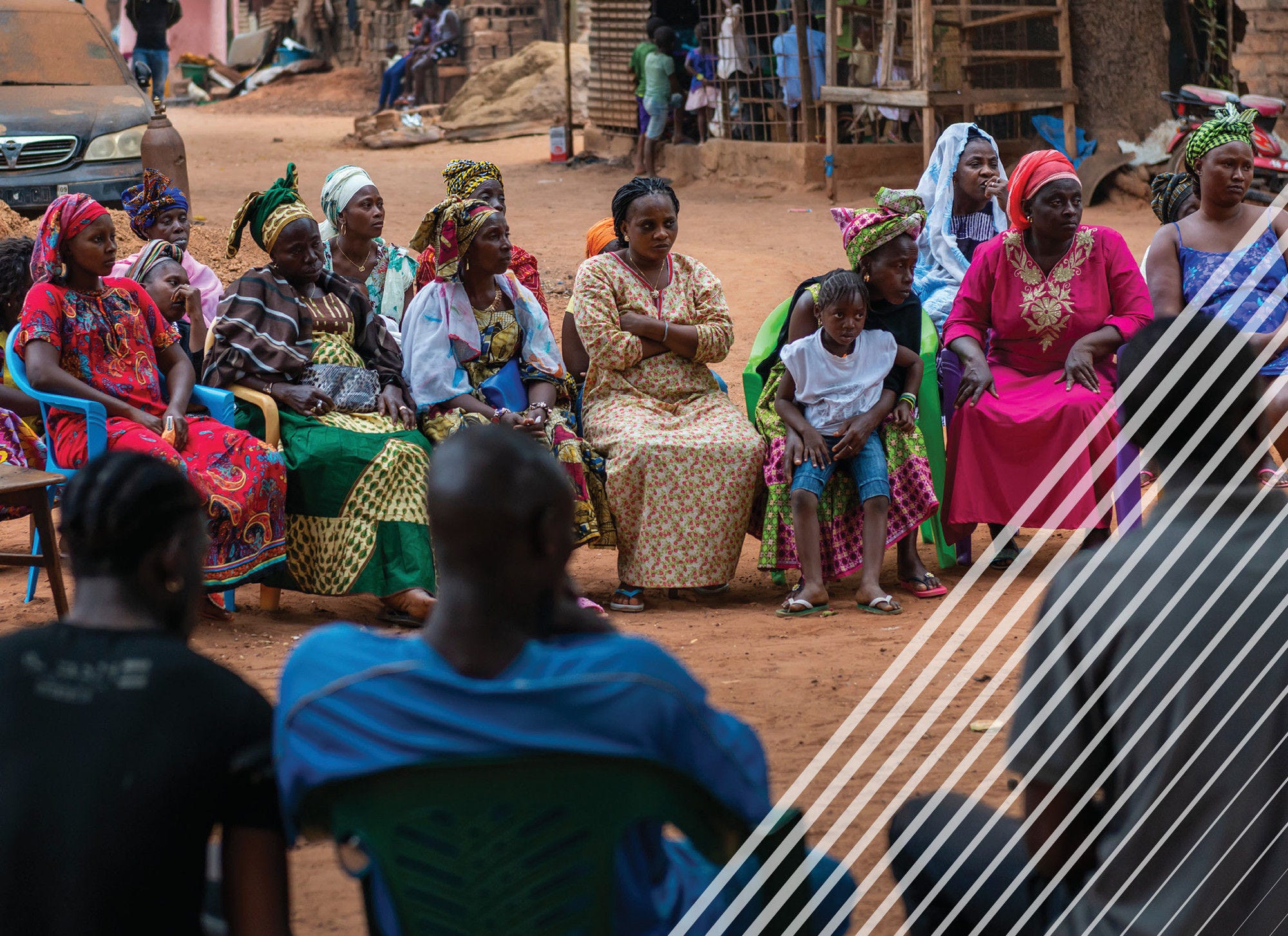Gender equality and the empowerment of women and girls are prerequisites to the realisation of the 2030 Agenda for Sustainable Development. This Guidance is a practical handbook for development partners supporting those global ambitions. Designed around the programme cycle and beyond, it provides practical steps for practitioners and examples of good practices, as well as checklists and recommendations on how to drive change.
Gender Equality and the Empowerment of Women and Girls

Abstract
Executive Summary
Gender equality, and the empowerment and full enjoyment of human rights by all women and girls are universal goals in their own right. They were set out in Sustainable Development Goal (SDG) 5 of the 2030 Agenda for Sustainable Development, in the Convention on the Elimination of All Forms of Discrimination Against Women (CEDAW), and in the Beijing Declaration and Platform for Action. They are also essential for leaving no one behind, and for economic growth and sustainable development.
Gender equality and the empowerment of women and girls: Guidance for development partners offers a practical handbook for members of the OECD’s Development Assistance Committee (DAC) and other development partners as they strive to advance gender equality. This guidance is designed around the programme cycle and beyond: from policy framework through analysis, design and implementation, to learning and evaluation. It sets out opportunities for increasing financing for gender equality with and beyond official development assistance (ODA), and the challenges of how best to establish the internal organisational systems required to deliver on gender equality in all development and humanitarian assistance efforts.
Policy frameworks and leadership are vital for supporting gender equality and the empowerment of women and girls
Leadership commitment and a sound policy framework recognising the importance of gender equality and the empowerment of women and girls are cornerstones for effective development co-operation.
With the global commitment to leave no one behind, DAC members are focusing on inequalities that intersect with gender. Many also recognise that transformative change is needed. This Guidance sets out approaches for development partners to address unequal power relations and harmful structures and norms, including working more closely with local women’s rights organisations, in order to achieve transformative change for gender equality and the empowerment of women and girls.
Support for gender equality starts with the planning and design of development programmes
Well-designed programming based on analysis, and clear policies and strategies are at the heart of development co-operation aiming to promote gender equality. Analysis of context and gender equality is critical for achieving sustainable results. Tools such as theory of change and gender equality continuum frameworks are helpful in understanding the complexity of what is needed to make progress. They also help to show how consideration of gender norms and roles, or ignoring them, affect the results of a programme. Data and indicators are essential for understanding the different needs, priorities, opportunities and barriers that individuals face.
Accelerating progress towards gender equality requires inclusive partnerships, and combining gender-focused actions with mainstreaming
Putting programmes into practice implies tracking and adjusting to context and political shifts, with sufficient staff and information to assess and advise when efforts get off track. DAC members recognise that a twin-track approach is needed, of both implementing programmes dedicated to gender equality and the empowerment of women and girls, and mainstreaming gender equality throughout policies and programming across sectors. Mainstreaming should include policy and political dialogue, and paying attention to internal institutional set-up and human resource policies.
Partnering is essential for implementation. It is good practice to consider each development partner’s strengths and weaknesses in the given context. DAC members should seek opportunities to also support local women’s rights organisations and movements in partner countries.
Financial resources should be drawn from both ODA and other flows
DAC member are increasing both the shares and amounts of bilateral ODA for gender equality. This can be attributed mainly to aid that integrates gender equality as one, although not the principal, policy objective. While this is positive, both dedicated and integrated aid are needed. ODA is measured using the DAC gender equality policy marker of the OECD’s Creditor Reporting System (CRS). Sound application of the policy marker is essential to ensure the quality and usefulness of data.
Private investments with a gender lens, blended finance and other types of financial flows can complement ODA for gender equality. Opportunities for DAC members include partnering financially with private actors, providing guidance and financial incentives for financial actors to work on gender equality, and providing technical support for actors in partner countries.
Monitoring and evaluating results can help build momentum for gender equality
Building a body of evidence demonstrating the achievement of gender equality can help increase political will to focus on, and increase investments in this goal. DAC members should consider adapting performance measurement frameworks and other assessment tools for gender equality results to account for the timelines and the complex nature of change. This includes encouraging partners to report on unanticipated results, either positive or negative, without unduly judging programme quality. Ethical considerations must be front and centre in evaluations of gender equality efforts.
Development partners need to demonstrate commitment to gender equality in their own institutional set-up
Gender equality needs to be addressed holistically. Development partners need to set the tone for internal culture: “living” organisational values is essential if those values are to inspire development efforts. DAC members need to build institutions and staffing levels that help all professionals work towards gender equality through incentives and accountability systems. A sufficient number of gender equality advisers needs to be in place, as well as non-specialist employees with the knowledge and commitment to address gender inequality in their areas of responsibility.
Related publications
-
 26 June 2024
26 June 2024






